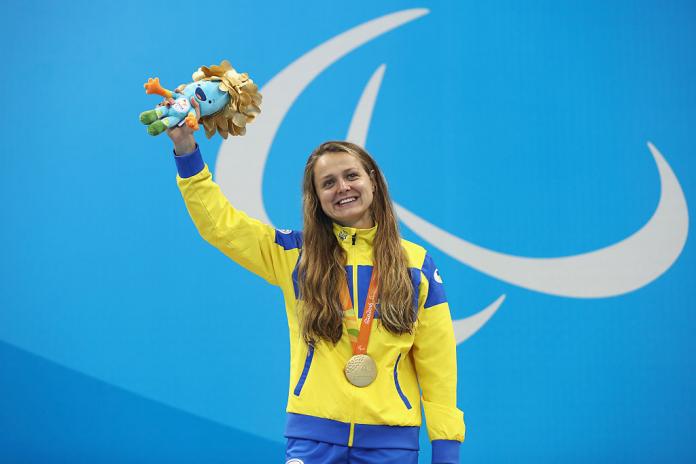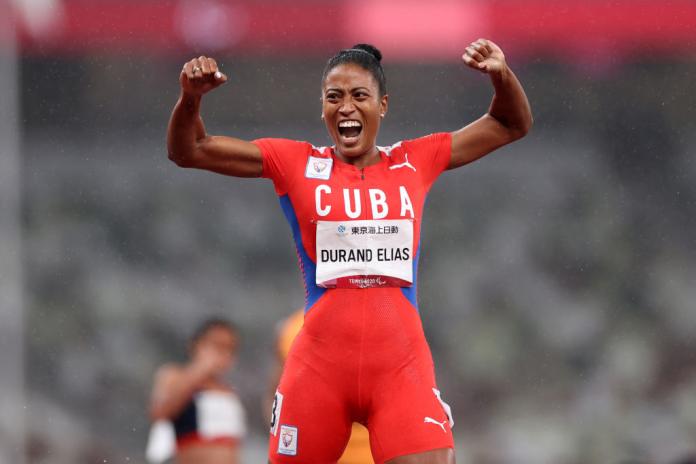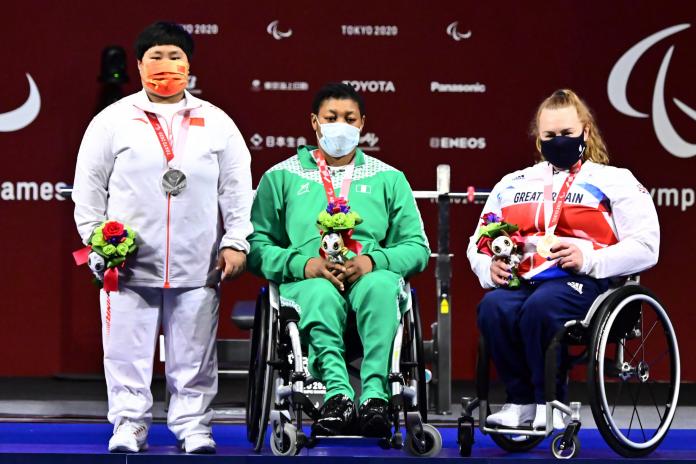
The ultimate aim of an elite Para athlete is to become a Paralympic champion, to have that gold medal round the neck as validation of years of sweat and tears competing on the biggest stage.
To stand on the centre of the podium may be a dream come true but why stop there?
Winning is the priority but doing it with a world record time, well, that is just a perfect bonus.
Sports like swimming, athletics, cycling, rowing, often see many world records at the Paralympic Games, rivals pushing each other harder, faster. Barriers are smashed down every edition and that is likely to happen again at Paris 2024.
At Rio 2016 there were 177 events in athletics and 69 world records set.
Four years later, at Tokyo 2020, there were 167 events in athletics and 45 world records claimed.
There were 152 swimming events at Rio and more than 60 world records broken.
At Tokyo 2020 there were 146 swimming events and 70 world records broken. Cycling saw 25 official world records established at the Izu Velodrome. In total, 48 were broken as some were lowered several times over the 51 events.
Rio recap

Records tend to tumble anyway when it comes to the pool but Rio 2016 proved to be a watershed for some of the oldest records.
Bradley Snyder (USA) and Ukraine’s Anna Stetsenko (UKR) demolished two of the longest-standing marks in the sport.
Snyder broke the 30-year-old world record held by countryman John Morgan in the men’s S11 100m freestyle to take his third Paralympic gold medal in a time of 56.15 seconds.
“It is something that I have been trying very hard to do during the last three years. And to break that record was a remarkable experience,” Snyder said.
We inspire each other to push each other even harder – Bradley Snyder
“I know I will not be the world record holder for long. There are many athletes and we inspire each other to push each other even harder.”
Stetsenko bettered the mark set by Germany’s Yvonne Hopf in the women’s 50m freestyle S13 at Atlanta 1996 Paralympic Games, touching in 27.34 seconds, just 0.04 faster.
“I can’t say that I was really surprised because I trained a lot for it. I felt a delight, happiness and lots of positive emotions which overwhelmed me that moment,” Stetsenko said.
As mentioned before, there were 152 swimming events at Rio and more than 60 broken world records.
The dominating star of the Rio Aquatics Centre was China’s Wenpang Huang, who swam world record times in S3 and SB2 events in the 50m freestyle, 50m breaststroke, 200m freestyle and 200m individual medley. Tragically he died in a car accident in 2018.
Durand, the legend

Looking back to the Brazilian edition of the Games, the best was saved to last as the final day of the athletics programme saw seven world records broken.
The headlines belonged to Cuba’s Omara Durand, the sprinter who never stops winning. The fastest female Para athlete on the planet won the 400m T12 to add to her 100m and 200m titles. She did it with her third world record of the Games.
She posted a time of 51.77 seconds knocking over a second off her qualifying run two days earlier. Durand also reduced her own 100m T12 record to 11.40 seconds.
Tokyo 2020 was a great success for the Cuban too and who would bet against the eight-time gold medallist breaking even more records in Paris?
Durand, who originally set her T12 200m world record of 23.03 seconds in Doha in 2015, finally broke it in Japan with a time of 23.02 seconds.
The future is bright
So, what will we see at Paris 2024? More world records, certainly. American runner Nick Mayhugh was a hugely exciting prospect at Tokyo, and he is not afraid to state his aim of more world records having finished with three.
He also won three gold medals from his four events in the T37 class. In the men’s 200m, Mayhugh broke the world record for the second time with his time of 21.91. It was his third world record of Tokyo 2020.
The footballer turned athlete confirmed his spot in the final of the 100m with a world record sprint of 10.97 seconds in the qualifying heats becoming the first T37 runner to beat the 11-second barrier. In the final he lowered his time again, recording 10.95.
“I expected things to happen the way they did in Tokyo. I have worked for it and I had world record times written and taped on my wall,” Mayhugh said after his success.
Power point

There were 20 Para powerlifting events at both Rio 2016 and Tokyo 2020. Nine world records were broken in the Brazilian edition of the Games and just two in the Japanese one. The latter came by the efforts of Guo Lingling and Folashade Oluwafemiayo.
China’s Lingling will be favourite to break a world record or two in Paris, having gone from strength to strength since making her Paralympic Games debut in Tokyo.
She set a world record of 109kg in the 41kg event at Tokyo 2020. Her starting lift was 105kg (a Paralympic record) and she failed once at 108kg before making it. She then succeeded in an extra world record attempt at 109kg.
The other world record holder, in the 86kg category, was Nigeria’s Oluwafemiayo, who beat her own world record twice before using a fourth and final attempt to set a mark of 152kg.
Expect rowing world records
Rowing is likely to produce world records at Paris 2024 after the changes to the rules. Tokyo 2020 was the first time the Para crews raced 2,000m (instead of 1,000m) to put the sport in line with able-bodied world rowing.
The standard is rising very quickly, and world’s best times are being set constantly. It seems inevitable that records will go in the ‘City of Light’.
There are five events scheduled including, for the first time, the PR3 mixed double sculls.